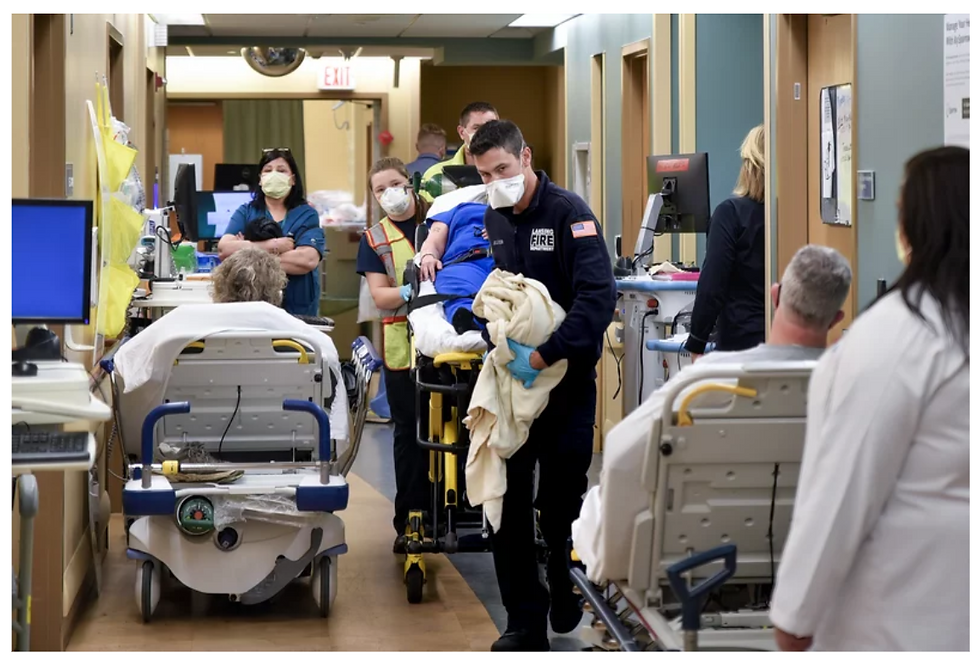Wounds and Skin Conditions Associated with End-Stage Renal Disease (ESRD)
- katherinepiette
- Jul 3, 2024
- 3 min read
Updated: Aug 5, 2024
By Katherine Piette

End-stage renal disease (ESRD) poses significant challenges beyond the well-known burden of dialysis and organ transplantation. One of the lesser-discussed but critically important aspects is the prevalence of wounds and skin conditions in ESRD patients. Proper management of these conditions not only enhances patient quality of life but also prevents severe complications, including amputations and costly hospitalizations.
The Link Between ESRD and Skin Conditions
Patients with ESRD are particularly susceptible to a range of skin conditions and wounds, primarily due to a combination of uremic toxins, poor nutritional status, and compromised immune function. These factors can lead to:
Xerosis (Dry Skin): Common in ESRD, xerosis can cause itching and cracking, making the skin more prone to infections.
Pruritus (Itching) is a common (~55%) and distressing symptom in ESRD patients. It often results in scratching that can break the skin and lead to infections.
Diabetic Foot Ulcers: Many ESRD patients also suffer from diabetes, increasing the risk of foot ulcers. Those with ESRD and diabetes are five times more likely to develop a foot ulcer and ten times more likely to receive an amputation.
Calciphylaxis: A serious condition characterized by calcium accumulation in the small blood vessels of the fat and skin tissues, leading to painful skin ulcers and infections.
The Importance of Proper Wound Management
Effective wound management in ESRD is crucial for several reasons:
Prevention of Infections: Open wounds are gateways for infections. Proper skin and wound care can prevent the onset of infections that can spread systemically, leading to severe complications and prolonged hospital stays.
Enhanced Healing: With meticulous care, including appropriate dressings and treatments, the healing process is expedited, reducing patients' pain and discomfort.
Avoidance of Amputations: Ineffectively treated wounds, especially in diabetic ESRD patients, can lead to severe wounds and amputations. Implementing comprehensive wound care protocols can significantly reduce this risk.
Cost Reduction: Preventing complications such as infections and amputations can substantially decrease healthcare costs associated with prolonged hospitalizations and surgical interventions.
Strategies for Effective Wound Management
The following strategies are needed to optimize wound care in ESRD patients:
Regular Monitoring and Assessment: Frequent skin and wound assessments are essential for early detection and prompt intervention.
Customized Care Plans: Each patient's wound care plan should be tailored to their specific needs, considering factors such as nutritional status, mobility, and underlying health conditions.
Interdisciplinary Approach: Collaboration among nephrologists, dermatologists, wound care specialists, and nutritionists can provide comprehensive care, addressing all aspects of the patient's health.
Patient Education: Empowering patients with knowledge about skincare, signs of infections, and the importance of reporting new or worsening symptoms can enhance self-management and outcomes.
Corstrata's Specialized Program
At Corstrata, we understand the complexities and challenges faced by patients with ESRD. Our specialized and focused wound care program is designed to provide comprehensive, evidence-based care tailored to the unique needs of ESRD patients. By integrating advanced wound care technologies, customized treatment plans, and a multidisciplinary team approach, we aim to improve patient outcomes and quality of life. By partnering with Corstrata, healthcare providers can leverage our expertise to prevent complications, reduce healthcare costs, and ultimately enhance the lives of their patients.
About Corstrata
Corstrata is a virtual care solution that utilizes technology to provide access to scarce certified wound, ostomy, and continence nurses (WOCNs) at the patient's bedside in post-acute provider settings, including home health, hospice, skilled nursing facilities, and emerging hospital-at-home providers across all 50 states. Corstrata's team of WOC nurses provides consultations with provider staff at the patient's bedside, either through HIPAA-compliant video or through review of store-and-forward wound images, to improve clinical and financial outcomes for providers. To learn more about how Corstrata can help your organization better support your staff, visit www.corstrata.com.




Comments